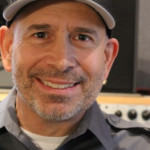Sound Sickness
By Chuck Mitchell
 The cost of a sound system varies widely due to the nature of venues. Some may be 40 seats, others 10,000. In any case, you have money into it. Many of today’s auditoriums and churches have a sizable amount invested into their sound system but aren’t realizing how much of that money is being wasted. Consider that the System is $100,000 for example. With higher-end systems, the 80/20-rule applies in which case you invest 80% more money to get that 20% of extra performance.
The cost of a sound system varies widely due to the nature of venues. Some may be 40 seats, others 10,000. In any case, you have money into it. Many of today’s auditoriums and churches have a sizable amount invested into their sound system but aren’t realizing how much of that money is being wasted. Consider that the System is $100,000 for example. With higher-end systems, the 80/20-rule applies in which case you invest 80% more money to get that 20% of extra performance.
But, much like a race car, computer, or even the body of an athlete, if the sound system is not performing to the fullest, you are wasting some of the return from money invested. More importantly, you are wasting opportunity. Say a person invites a friend to come to a church or a performance in your venue. If their impression of event is waned by irritating, harsh, or error-ridden sound, they will carry that with them as they think back on that experience and decide whether or not to return. It may even be subconscious. Many times, you have one shot at getting them in the door. Why waste it on something so easily correctable. It’s like the parking lot attendant that yells at people as the come in for a first impression. Fix that! Have you ever considered that with a little homework and some worthwhile investment, you can even retain your existing attendees with a more satisfied experience rather than expending their good-graces as they are hopeful and patiently waiting for improvement?
Ok. Perhaps its not as easy as one would hope. But it is certainly correctable. If you commit to the conclusion that having a good sonic end-result is important, then you can take some steps to get improvements.
Sound System or Sound Person
I’m always surprised how often this gets missed. Sometimes a professional sound person suggests improvements to the system. It may be valid and worth pursuing. But keep in mind that an experienced professional knows how to get the best out of a system. Be sure to spend the money to try different sound people, including higher levels of expertise before you blame the equipment. I hire sound people all of the time. When they are quick to blame the equipment for the shortcomings in their mix, I’m quick to consider the shortcomings in their skillset. Getting a great end result requires a synergy that includes both a well-designed, tuned sound system AND a skilled, experience sound person.
Consider that sound people in the past were only controlling a few channels for choir, piano, a vocal, and dialog. For over three decades, the advent of technology has provided extensive separated channel control of so many instruments, both in the studio and live venues, that it makes the sound person’s role more like the role of an orchestral conductor. All of the music is in his hands. This person has to consider the low/mid/high spectral balance for both individual sound sources and the overall sound to the listener. Even the timing, harmony and intent of the arrangement are in his control with separate vocal parts and instruments. This is not the role of an inventive kid with potential. He may be on the right path but supporting his trek cannot be at the expense of events that warrant a professional. In my opinion, the investment should be on-stage speaking and lead performing talent first, and sound person second. Try to match the level of sound talent with the level of on-stage talent. There is a “right” venue for everyone. Keep entry-level, volunteer sound people with entry-level, volunteer speaking talent and performers.
This thinking applies to on-stage talent as well. You can find a guitarist that plays 2 chords who’s not really a guitarist but is willing, bless their heart, to play for free, -OR- hire a skilled guitarist who can play something correctly because of years of practice and study. This excellence and skill should rival the skill levels of everyone else on stage.
Gold In Gold Out
This is often stated in the inverse: crap in crap out. I’m electing to take the more positive approach. If you have great musicians playing a well-balanced arrangement with skill and precision, then you can translate that into the room with a great sound person and system. No matter how well you translate your music into the room, you are never able to make it sound better than it is at the source. If they play sloppy and out of tune, then even a great sound person can only deliver a clear and clean version of sloppy and out of tune results. Inversely, it is wasteful to have a stage of great sounding musicians when your sound in the room is so degraded that the listener never hears the culmination of their hard work. That’s like putting a perfectly great light source under your bed where it cannot illuminate the room.
Sound System Optimization and Tuning
Sometimes, sound people find that they have common tone adjustments (EQ settings) on several if not most of their channels. This can be a sign that they are compensating for spectral problems in the sound system using each individual channel. The secondary problem with this is that, many of the in-ear systems used to listen on stage get their source from these channels and normally would benefit by being post (after) the EQ and Dynamics. If the EQ is correcting the room issues, it is most likely not going to sound good with in-ear monitors where the correction is not needed. In these cases where one mixer is shared for both stage and room, tuning the room helps the on-stage mix sound better, thus achieving better performances from the vocalists and musicians.
Everybody has “a guy”. Sometimes they are the right person, sometimes not. One should select a qualified audio engineer with references and a strong reputation before having them jack with your sound system, especially with a large investment in the system. We tune rooms all the time. Many times, we are tuning rooms that were recently installed. They often are perfectly fine, sometimes well designed but they lack the proper commissioning to get a good end result.
There are MANY experienced, totally qualified audio engineers out there that have contributed to the great sounding systems we experience today. In my case, I believe that my 3 decades of recording/mastering experience gives me a strong advantage. But without the decades of experience with sound system design, audio processor programing, and technical knowledge, the end result would suffer. With this, we all have an individual philosophy that drives us to our end result.
Most of the pros are “technicians” who come in to tune with measuring equipment that helps to evaluate several aspects of the system’s translation into various parts of the room. But the system can’t just be flat. It has to be musical and responsive. This is achieved through subjective listening of familiar music and tracks, and the process of live mixing in the room. The “technicians” must also be artists with a skill that’s refined from decades of critical listening.
Trust Your Ears
Although I have coined this statement for audio engineers, I think it also applies to those less educated listeners that are aware of when it sounds good through an experiential approach. Think of a time when you were at a concert or event and the sound was “pleasing” or “clean”. It may have evoked an emotional response with one of your favorite artists. This is the essential importance of excellence. We all appreciate it when we experience it.
With a little effort and some investment, you can provide a clean, clear, pleasant sound to everyone in your venue. Many of the complaints about volume disappear when you have an improved, well-balanced sound. TechArts is obviously a proponent of getting the best result possible within the confines of our client’s resources. We encourage you to due-diligence, put out the effort to provide the best sound possible for your listeners.

 Chuck’s passion for music and sound recording started in his elementary school years with reel-to-reel tape and playing keyboards in bands. Now, with over 30 years experience and a B.A. in the field of music, sound and technology, Chuck brings the balance of art, design, and technical applications to the table with a wide array of experience. As a composer, he has extensive experience and has composed with and for such greats as Thomas Dolby, Bob Ezrin, and others. As an AV system designer and sound engineer, his ability to create solutions, listen critically, and assemble resources brings every project to completion with excellence. As the owner and visionary for Voice of the Arts, Inc. and TechArts, Chuck is responsible for project designs, operations, management, quality assurance, staying within budget, and delivering on time. Chuck has also served as a dubbing consultant on several international films for 20th Century Fox, Lucas Films and DreamWorks such as Star Wars Episodes 1, 2, and 3, Shrek, Spirit, Titan AE, and El Dorado, bringing these films to Russia, China, Greece, Spain, Poland, among others. Today, it is always evident that his commitment is to bring creative solutions to his client’s needs. Check out Chuck’s blog at http://techartscreative.com/blog
Chuck’s passion for music and sound recording started in his elementary school years with reel-to-reel tape and playing keyboards in bands. Now, with over 30 years experience and a B.A. in the field of music, sound and technology, Chuck brings the balance of art, design, and technical applications to the table with a wide array of experience. As a composer, he has extensive experience and has composed with and for such greats as Thomas Dolby, Bob Ezrin, and others. As an AV system designer and sound engineer, his ability to create solutions, listen critically, and assemble resources brings every project to completion with excellence. As the owner and visionary for Voice of the Arts, Inc. and TechArts, Chuck is responsible for project designs, operations, management, quality assurance, staying within budget, and delivering on time. Chuck has also served as a dubbing consultant on several international films for 20th Century Fox, Lucas Films and DreamWorks such as Star Wars Episodes 1, 2, and 3, Shrek, Spirit, Titan AE, and El Dorado, bringing these films to Russia, China, Greece, Spain, Poland, among others. Today, it is always evident that his commitment is to bring creative solutions to his client’s needs. Check out Chuck’s blog at http://techartscreative.com/blog




